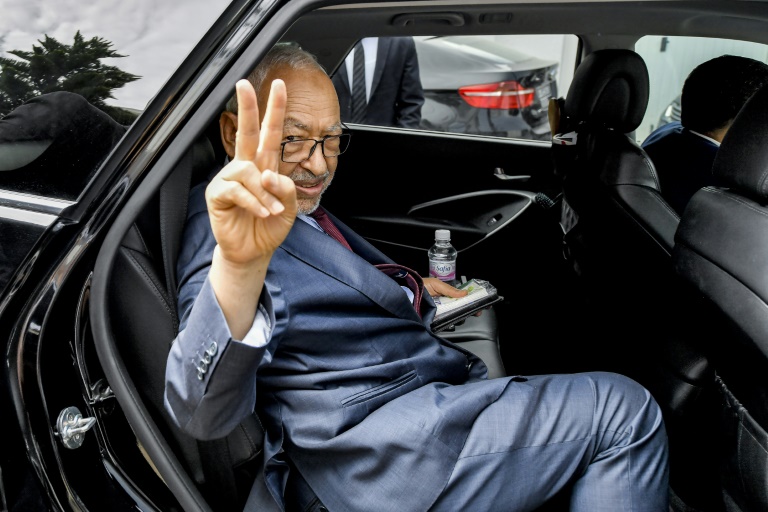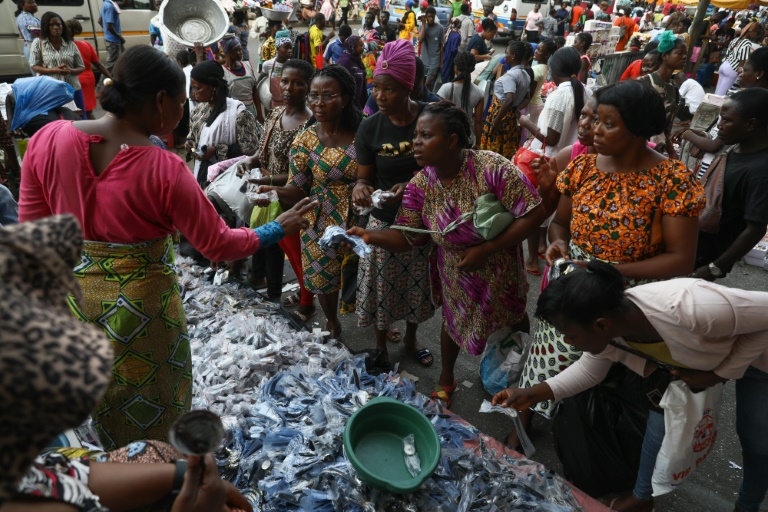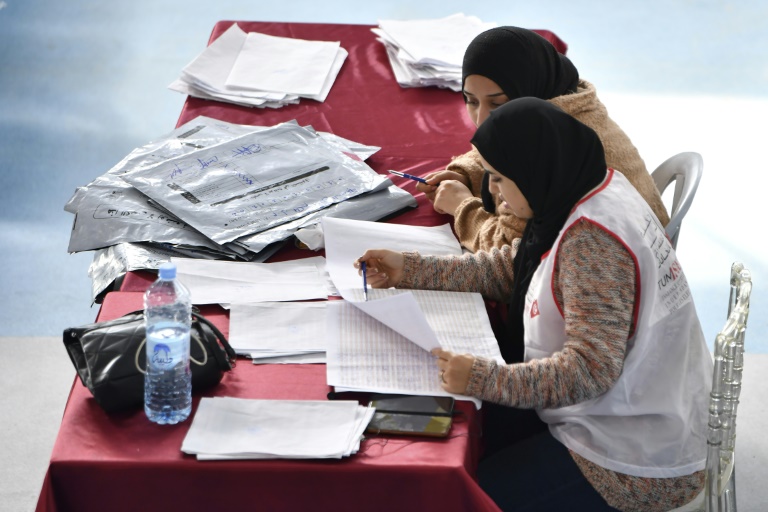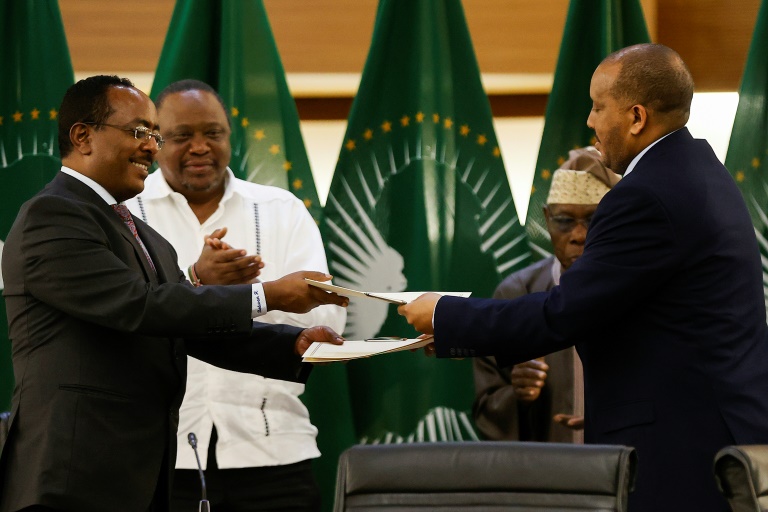The leader of Tunisia's Islamist-inspired Ennahdha party, Rached Ghannouchi, arrives for questioning by counter-terrorism police on Tuesday
The leader of Tunisia’s Islamist-inspired Ennahdha party was questioned through the night over alleged complicity in the departure of jihadist militants for Syria and Iraq, his lawyer said Wednesday.
Rached Ghannouchi, who has been a key player in Tunisian politics for over a decade, appeared before a judge on Wednesday morning after being questioned overnight by specialist anti-terror police.
The 81-year-old, who had left the police station in Tunis at 6:30 am (0530 GMT), is to be interrogated again on November 28, lawyer Samir Dilou said.
Ghannouchi dismissed all the allegations.
“The questions had no basis and there was no evidence for the accusations,” he told journalists.
“There are attempts afoot to neutralise a political rival.”
Ghannouchi was exiled for over two decades under late dictator Zine El Abidine Ali, but had returned following the country’s 2011 uprising to become a dominant figure in Tunisian politics — including as speaker of parliament.
But he is a key rival of President Kais Saied, who suspended the legislature last year and later seized control of the judiciary.
Ennahdha categorically denies the accusations levelled at Ghannouchi and Tunisia’s former prime minister Ali Laarayedh, who was also questioned for hours on Monday and remained in detention, according to Dilou.
Ghannouchi has now been summoned to appear before the judiciary’s counter-terrorism branch later Wednesday, his lawyer Samir Dilou told AFP.
He had spent 12 hours waiting to be questioned at the police counter-terrorism unit on Monday before being told to come back the following day.
His party denounced the interrogation as “a form of torture” and part of “a total set-up”.
Critics of Ennahdha accuse it of having facilitated the departure of militants for war zones.
After the 2011 overthrow of dictator Zine El Abidine Ben Ali, thousands of Tunisians joined the ranks of jihadist organisations — most notably the Islamic State group in Syria and Iraq, but also in neighbouring Libya.
Ennahdha played a central role in Tunisia’s post-Ben Ali democratic politics until Saied began his power grab in July last year, which was followed by a controversial referendum which granted unchecked powers to his office.
The party has accused the president of seeking “to use the judiciary to tarnish the opposition’s image” and “distract the public” from the North African country’s pressing economic woes.
In July, the same counter-terrorism unit questioned Ghannouchi in a probe into allegations of corruption and money laundering linked to transfers from abroad to the charity Namaa Tunisia, affiliated with Ennahdha.










